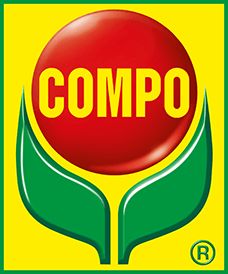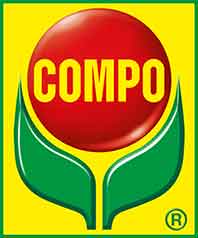
- COMPO Group
- Responsibility
- Sustainability
- Sustainable production process
Sustainable production process
Taking on responsibility not only begins with the product at COMPO, but with the beginning of each individual development and manufacturing process. The focus is placed on regionally sourced and processed renewable raw materials from the moment we select the base substances that go into the products. The consistent regionalisation strategy and the sustainable packaging concept likewise contribute towards a very significant reduction in emissions and set standards for the entire industry.
Research and product development
The internal research work drives product innovations forward. At the company's research centre in Münster, a multidisciplinary team investigates how each individual product can be made even more effective, safe, environmentally friendly and user friendly. In addition to searching for new raw materials, our experts create new formulations and continuously develop product recipes. The successful completion of authorisation procedures plays an important role. All products are tested rigorously both internally and externally before they are launched on the market.
Raw material selection and procurement
COMPO takes its responsibility towards society, partners and nature very seriously. The aim is to obtain and deploy resources as sustainable as possible. Accordingly, the focus is on making use of sustainable local raw materials, preferably obtained from the circular economy. COMPO has already been stocking extensive organic product lines differentiated according to specific requirements in its range for many years, is continually developing these lines, and with the ongoing optimisation of the sustainable packaging concept it offers a completely sustainable solution. Within the scope of the sustainability strategy, COMPO is focusing on organic solutions in particular.
Production process and regionalisation strategy
The regional provision and processing of raw materials ensures shorter delivery times and routes and therefore a significant reduction in emissions. It also enables COMPO to guarantee greater reliability and flexibility in the supply chain, as well as to ensure better control of quality and volume flows. In particular, this is essential when production volumes in the product category increase significantly and continue to grow steadily.
Supply chain and sales processes
COMPO only enters into business relationships that are in line with the fundamental values of integrity, fairness and respect, compliance with regulations and the law, employment, occupational health and safety, production safety and quality, and environmental protection. The Code of Conduct states that COMPO must conduct business and maintain business relationships in compliance with all laws and regulations and in accordance with high ethical standards.
Sustainable packaging
COMPO's packaging types, made of recycled materials, set industry standards and have already been distinguished on a number of occasions by renowned awards, such as the German Packaging Award. We are not talking about the conventional reusable solutions everyone is familiar with from the drinks industry, for example, but rather about a packaging concept based upon complete recyclability and containing a proportion of recycled materials. This packaging is used for all product categories, i.e. for foil bags, bottles, and also buckets. COMPO's collapsible boxes consist of 100% recycled paper.
Buckets consist of 90% recycled materials. Depending upon the product line, the potting soil packaging consists of up to 80% recycled plastic. Just like the buckets, the liquid fertiliser bottles have the highest proportion of recycled plastic (90%). The containers were developed in close co-operation with Der Grüne Punkt [the green dot] and received the German Packaging Award in the 'Sustainability' category in 2018. This manufacturing process involving the reprocessing of plastic waste generated by private and commercial consumers has not been seen before in the fertiliser industry.
Packaging materials obtained from the recovered substance cycle are re-used for the packaging and thus re-routed to the market – in the sense of the circular economy – as so-called post-consumer material. In this way, disposable packaging is turned into a reusable solution, which offers the benefit of contributing towards a significant reduction in primary raw materials (virgin materials). Depending upon the material type and effort expended in the recycling process, 20-50% of CO2 can be reduced if new goods are dispensed with in the same proportion.

